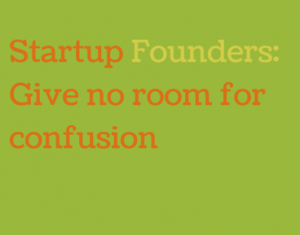I have been interacting with various startup teams over the last several years, predominantly around ideation, product-market fit, funding, scaling, and strategy aspects of the companies. Before I was an investor, I spent a lot of time around product creation with two successful startups in the Silicon Valley and managing business in a large Internet company. In recent times, I have been spending a lot of time on the board of several Indian companies who are starting to scale. Over many years of this engagement with startups, I have come to believe in few things, and one of it is what I call “Rules of the Game”. The sporting analogy is deliberate, as I use it throughout this article.
The Rules of the Game
In India, most of the founders get into their entrepreneurial journey with very little preparation and knowledge. In fact, it looks like most of them jump in based on how their friends have done or the founders in the company they work have done. Some of the serial entrepreneurs are starting to plunge in their second attempt, much more prepared and know a lot more about how the game of entrepreneurship is played. However, most of the entrepreneurs haven’t thought through the rules of this game, especially, the difference between a win, a draw and a loss in the game of entrepreneurship.
What is a win, draw and a loss?
Most of the entrepreneurs start their journey with an intention to solve a problem that they have identified is important and useful. If one has setup a small company with a tiny team, has solved the problem well and has great number of customers, and customers are paying, the game is already looking interesting for you. If you are making profits, and you are paying yourself a market salary, and you are self sufficient with enough room to grow, make no mistake about it, you are winning the game.
If you have raised money, built a great team, an outstanding product, a defensible growing business and you know how to take the company to profitability, and you are geared towards an exit or have already done, you are a role model. This is definitely a BIG win.
On the other hand, you invested time and effort in building the product out, you made attempts to find product-market fit, you learnt how to market, sell, and support customers, hired few good team players, and overall you have done every thing possible. However, you come to know that the business model is not viable and you cannot service customers within the budget. After all fixes to business model, if things don’t change you may decide to shut down and look for your next gig. From my point of view this is definitely a “draw”. It is draw because in the process, you have learnt a lot of things around entrepreneurship; the rules of the game and you come out very strong in your next gig.
A loss is when you are caught in a rut. You have built some sort of a solution, you have few customers, but they are not very happy. You are not able to scale the company as the product-market fit is not yet accomplished and at the same time you have just enough revenues to pay your bills and manage your employees. You know at the bottom of your heart that you can continue the way it is for several years, but you don’t see a big change. This is a classic “loss”.
I’ve always believed that the loss is where you don’t want to be, because of the uncertainty about which direction you need to take. Conversely, a draw can be bounced back from. Everything you’ve learnt and gone through is invaluable. You’ll be a far better entrepreneur the next time around.
But is there a better way to learn, to get the experience of the win, draw, loss without actually playing the game? That would be brilliant, wouldn’t it?
Ideation vs. Execution
Of course there is a better way to learn. In fact, there are reams of startup literature out there; the best of them are free, actually, and your first step should be to read them and read up on your domain as much as you can. In fact, I have even counseled people to do nothing except read for a month before getting into the game. Read interviews of very successful entrepreneurs and grasp around “why” they were successful. What was the context under which these folks operated and how they tuned their operations to be successful against others is a great learning. This knowledge is out there. You just need to take it and apply to your world.
However, most of the time, reading and understanding isn’t going to be enough. Reading about it and executing it are two completely different things. This is where the value of the ecosystem and mentoring becomes very useful. A mentor can take all that knowledge you have imbibed and help you translate it into meaningful, decisive actions in your context. And again, the quality of such mentors matter. A mentor who makes a business out of ‘guiding’ startups is not a mentor. An excellent mentor is very articulate, keen observer, and some one who has gone through their own iterations of their idea, started a company, learnt every thing possible about their customers, and eventually was able to scale the company. Your best bet is to find such mentors and interacting with them is of significant help.
In a fledgling software product ecosystem like ours, finding enough successful mentors to support many of our startups is very tough. This is where, I see the value of efforts like the inaugural #PNCamp. Throwing in just-started practitioners with experienced practitioners and having them help each other is in my view, the best thing that can be done to push the ecosystem to accelerate faster. I am hoping that many other such practitioner lead hangouts happen in the country to boost our eco-system to next orbit.
Looking at the agenda and participants of #PNCamp, it looks like there will be an incredible amount of exchange of practical knowledge among attendees and also bit customized as each session being small (around 20 folks).
If you want to see an example of practitioner-lead-mentor, see the movie “Miracle” based on the real-story of US Olympic ice-hockey team winning against the invincible Russian team. The credit of the win goes to the player who turned coach; Herb Brooks who guides and empowers the team for a win that no one thought was possible.
All the best for the #PNCamp and thanks to Sairam for putting this together.





